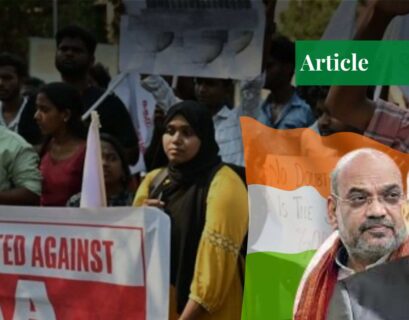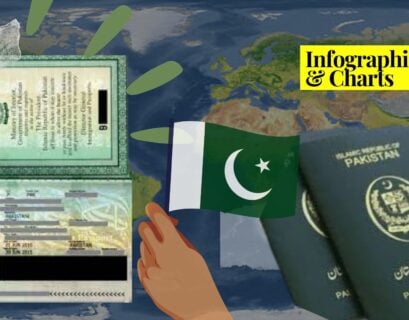Ms Imama Khan is an Islamabad-based researcher. Her articles have appeared in The News, The Pakistan Observer, Global Village Space, and Matrix Mag.
The Civil Services Colonial Legacy
Today, more than 80% of the youth of Pakistan aspire to join the civil service or bureaucracy by appearing in the CSS examination. While Pakistan is no stranger to herd mentality, the pursuit of civil service positions is taking an increasingly irrational and perplexing turn. In the year 2022, the passing rate stood at a mere 1.85%. Out of a total of 20,262 candidates who undertook the written examination, only 393 managed to successfully pass and advance to the viva voce stage. Amidst Pakistan’s prevailing issues, the CSS predicament remains largely overlooked.
The civil bureaucracy in Pakistan is a legacy inherited from British colonial rule. In the subcontinent, the British employed the Indian Civil Service (ICS) to administer and govern the local populace. The majority of individuals in this service were British themselves. However, by the early 20th century, certain “elite” Indians had broken through the initial dominance of British officers and secured positions within the ICS.
This cadre of civil bureaucrats fostered what is known as the “babu culture” in the subcontinent. Both India and Pakistan inherited this culture, where suit-clad English-speaking men issuing commands were afforded more respect than other professionals. Despite global evolution and reforms in civil bureaucratic systems, Pakistan’s civil bureaucracy seems to be regressing.
Pakistan’s CSS Predicament
The Central Superior Services, commonly referred to as CSS or Civil Service, is the permanent elite civil service entity in Pakistan responsible for managing bureaucratic operations, government secretariats, and cabinet directorates. For decades, the civil bureaucracy was primarily occupied by individuals from the political and social elite. Faced with challenges like unemployment and inadequate compensation, the middle class has gradually realized that, aside from pursuing a career in the military, attempting the CSS examination is a guaranteed path towards ensuring a “secure” future.
Pakistani youth are not new to herd mentality. There was a time when every high school girl and boy in the country wanted to join the military or Air Force to “serve the country.” With the Pakistani military establishment now having a tarnished reputation, a significant portion of the youth seek to pass the CSS examination as a means to “serve the country.” Needless to say, there is a lot going wrong. To begin with, implying that only civil service participation equates to “serving” the country belittles professionals in other fields. Teachers, engineers, doctors, writers, journalists, and individuals in various other domains contribute just as much, if not more, to the country.
Similarly, the contemporary desire among middle-class youth to join the civil service mirrors the aspirations of their counterparts 10-15 years ago who aimed to join the armed forces—both pursuits are fueled by the desire to transcend their middle-class origins and attain positions of power. This mindset, rooted in the babu culture left behind by the British, equates power with success.
Corruption & the Bureaucracy
The condition of the civil bureaucracy in Pakistan has deteriorated over time. Corruption and nepotism have permeated every facet of the civil service. Local politicians, often less qualified than bureaucrats, treat these officers as their pawns, rewarding them upon completing tasks. As retired and resigned CSS officers have indicated, these tasks often prioritize the interests of Pakistan’s political and social elite over those of the common man.
Historically, this was not a big issue due to the fact that the country’s civil “servants” belonged to the elite class and could exert some influence over which orders to obey or defy. However, today’s youth, having joined the civil service, lack the social standing and political backing required to refuse orders from their superiors. The cost of sacrificing integrity and selling morality is a few lakhs.
This predicament can be traced back to Prime Minister Zulfikar Ali Bhutto’s “administrative reforms,” which stripped bureaucrats of their constitutional safeguards and rendered them subservient to politicians. While in the subcontinent, bureaucrats served the monarch, who do Pakistan’s bureaucrats serve today? The story of Jahanzaib Khilji, a customs officer falsely accused of murder and imprisoned for 16 years merely for attempting to combat smuggling, stands as just one of the numerous tales that should caution the youth aspiring to join the civil service for the sake of “serving the country.”
It’s imperative for Pakistani youth to dispel the misconception of “serving the country” and recognize that their desire to join the civil service primarily stems from the pursuit of a better lifestyle. These aforementioned realities are widely acknowledged. Nevertheless, the youth ardently compete to pass the “prestigious” CSS examination, playing their part in the country’s downfall. A mindset that associates work with the lower class and authority with success can never genuinely serve a nation. This is not to suggest that the youth entering the civil service harbor ill intentions or have the capacity to effect change. Yet, the youth are undoubtedly cognizant of the trajectory they must follow once entrenched in the bureaucracy.
The landscape is saturated with institutions capitalizing on CSS preparation and reaping substantial profits. The middle-class youth, equipped with talents and capabilities for greatness, remain enslaved by a mindset that the world abandoned a century ago. Prioritizing talent, skills, and diligence over herd mentality is imperative. If the youth genuinely aim to enhance their nation, they must begin by being honest with themselves.
By redirecting their aspirations toward holistic progress rather than mere personal gain, the Pakistani youth can break free from the historical shackles of the babu culture. Regarding the country’s bureaucracy, it ought to undergo either comprehensive reform or complete elimination. After all, a financially struggling country like Pakistan cannot justify allocating public taxes towards lifelong luxuries and amenities for a bureaucracy that predominantly serves only a specific segment of the population.
If you want to submit your articles, research papers, and book reviews, please check the Submissions page.
The views and opinions expressed in this article/paper are the author’s own and do not necessarily reflect the editorial position of Paradigm Shift.


















